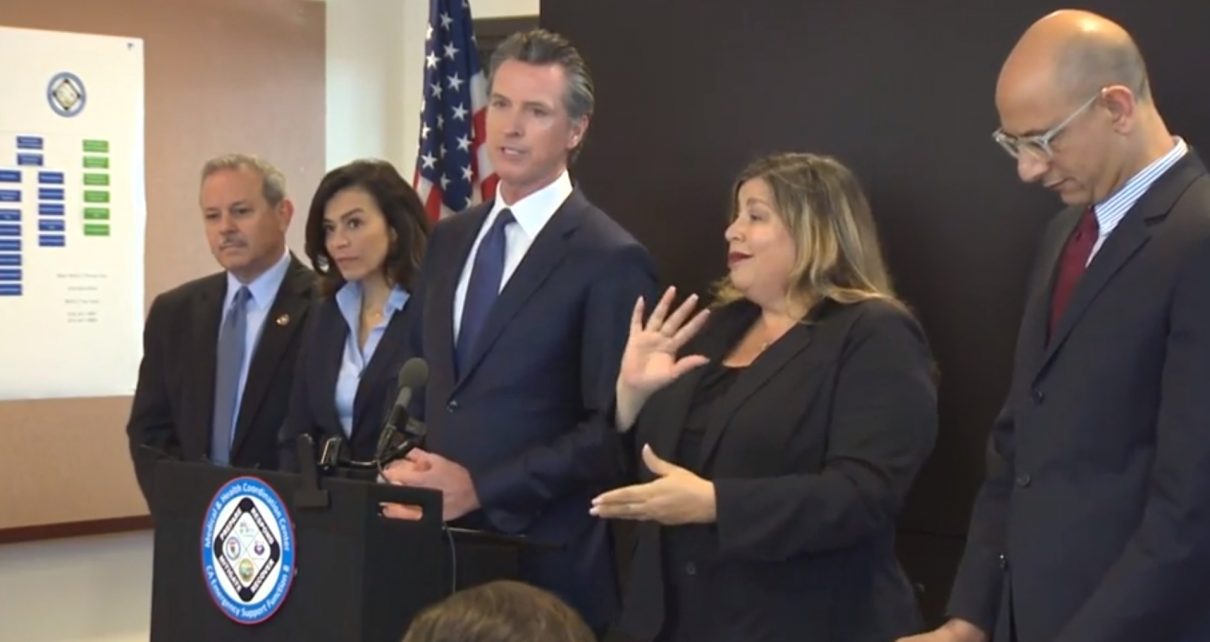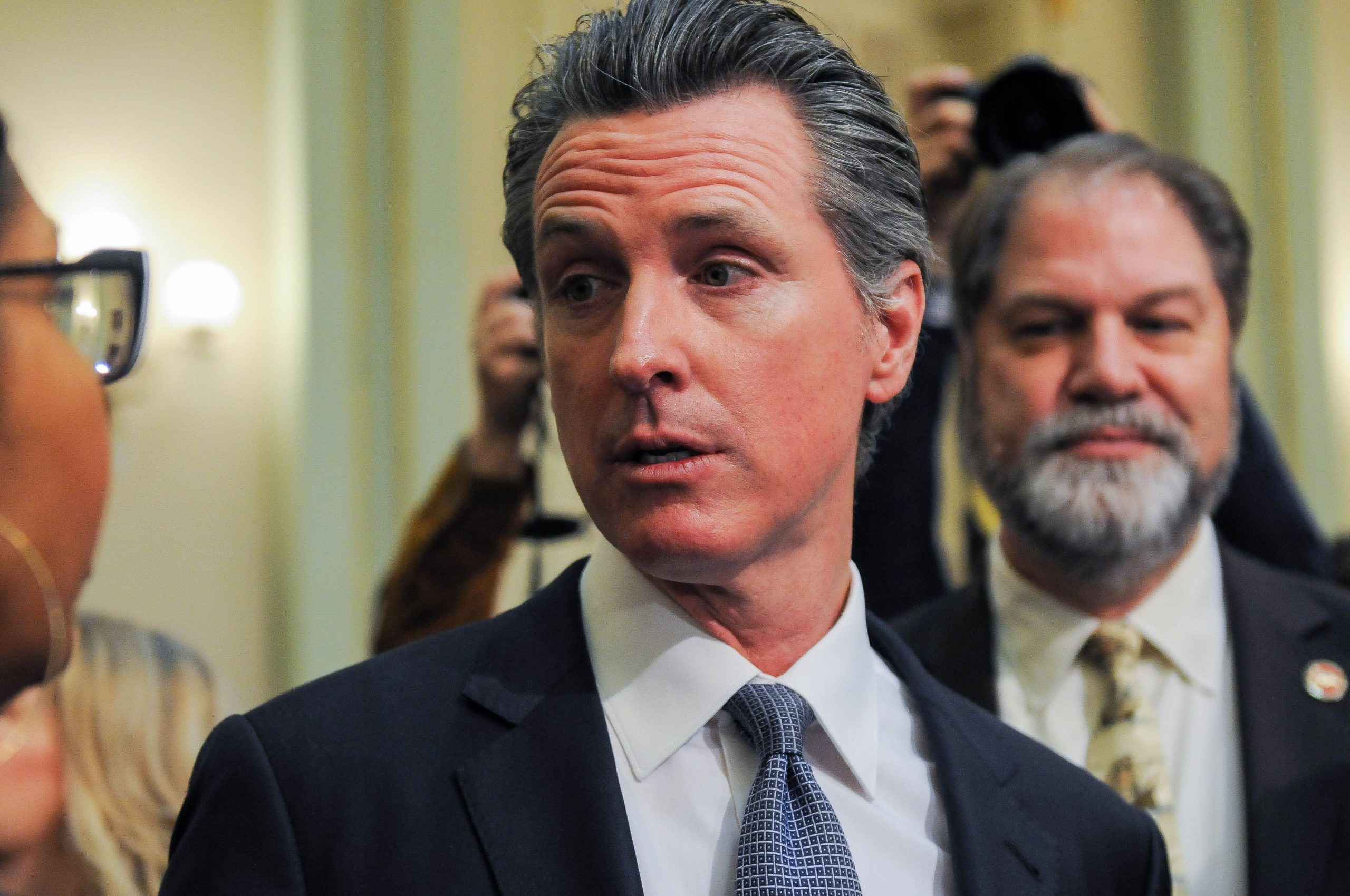
Governor Newsom at the February 27, 2020 press conference. (Photo: Youtube)
Gov. Newsom Updates Public on Coronavirus Spread in California, Advises Citizens to Use Common Sense.
33 cases have been currently found in California, with one case spread naturally
By Evan Symon, February 27, 2020 1:18 pm
“He hasn’t seen something on this scale before and it shows.”
Governor Gavin Newsom held a press conference in Sacramento on Thursday, updating the public on how the COVID-19 coronavirus was spreading in the state.
As of Thursday, 33 coronavirus cases were confirmed in California; 28 of those cases have been quarantined, and 5 others were moved out of the state.
Most dramatically, California Department of Public Health Director Dr. Sonia Angell confirmed the first natural community spread of the disease with a patient in Solano County who is currently being treated at the UC Davis Medical Center in Sacramento. The Governor also confirmed that California officials were currently monitoring 8,400 people for virus spread.
“We knew this was inevitable,” said Newsom about the spread of the virus in California. “We’re meeting this moment with the kind of urgency that is necessary.”
Newsom also confirmed that that state will be doing more to test and stop the spread of the coronavirus, including receiving more test kits from the CDC. He noted what Californians should do at this point in time.
“People should go about their day to day lives with some common sense,” said Newsom at the press conference. “I don’t want to instill any sense of new anxiety. We are not overreacting nor are we under-reacting to the understandable anxiety many people have.”
Currently parts of California, including San Francisco and Orange County, have declared a state of emergency over the virus. The U.S. itself has acted swiftly to the crisis, with the CDC quickly quarantining any patient with the help of local officials and Vice President Mike Pence being elevated by President Trump on Wednesday to lead the country’s fight against the coronavirus. A quarantine had also been announced earlier in the month.
The coronavirus spread has been the Governor’s first medical crisis since being elected and has so far brought mixed reactions.
“He went out there, told the facts, told everyone what they were doing, and then said not to panic,” said Dr. Jan Ritter, a medical professional who has helped advise counties during epidemic threats in the past. “He’s obviously getting a lot of help up there, but all in all he’s doing a fairly decent job of explaining.”
Others were not so sure.
“He brought up his experience in seeing the spread of HIV/AIDS in San Francisco growing up in the ’80s,” said Dr. Ryan Feldman, who helped treat SARS patients during the 2002-2003 epidemic. “And there was also the health crises the city faced. But this is completely different. This is a possible epidemic, yet he’s keeping it on the down low. Yes, it shouldn’t incite panic, but you need to at least mention what more you can do.”
“During the SARS outbreak I had patients coming in with masks, and more than half said it made them feel better. A big part of outbreaks are psychological factors. While calming people is good, you need to give people the option to do more. And he didn’t step up.”
“He hasn’t seen something on this scale before and it shows.”
California’s 33 confirmed cases currently make up over half of the 60 confirmed cases in the nation.
- Bill to Require Law Enforcement Disclosure if AI Was Used To Help Write Reports - August 7, 2025
- Gov. Newsom Files FOIA Request To ‘Expose True Cost’ Of L.A. Federal Troop Deployment for Anti-ICE Riots - August 6, 2025
- California Redistricting: How Newsom’s Plan Will Demolish Hard Fought GOP Gains - August 6, 2025



